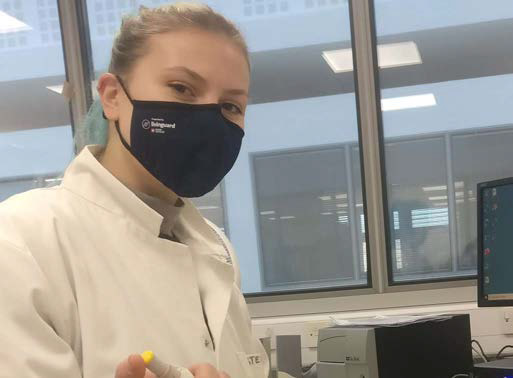ICL is collaborating with Bangor University to carry out research on the effects and benefits of organo-mineral fertilizers for turf. MRes (Masters by Research) student, Deniz Arslan, is carrying out the yearlong research at Bangor University, and believes that the findings could be of great benefit to several sectors.
“We will be looking at how efficient organo-minerals are comparing to mineral and organic versions and how they all effect soil health,” she said. “The outcomes of this research can be important for all fields and will provide information to help fertilizer users make informed decisions.” Mineral fertilizers are very commonly utilized and there is plenty of research detailing their benefits and the issueswhich can arise from poor product selection or over-application, for example leaching of unused nutrients from the growing zone of a crop.
On the other hand, organic fertilizers offer other potential benefits, such as supporting microbes in the soil, but are often described as not performing as efficiently or productively as mineral fertilizers. “Organo-mineral fertilizers, combining the benefits of minerals and organic sources, could be a more sustainable step for turf managers to take,” said Deniz. “I hope to prove that organo-mineral fertilizers are indeed beneficial for the soil and environment, and with no negative performance issues for turfgrass. Agricultural trials do show higher yields and performances which is promising, but of course it is different when measuring turf. You don’t necessarily want to grow more or longer grass.”
Gronamic, ICL’s organo-mineral fertilizer brand, will be used in this research project. The experimental trials will include glasshouse trials of perennial ryegrass with Gronamic Sport High N and Gronamic Golf High N, contrasting with equivalent mineral and organic fertilizers. “This unique research project will focus on plant growth, soil health and nutrient use efficiency factors, making use of the advanced equipment and facilities available at Bangor University,” said Deniz.
The scholarship named KESS (Knowledge Economy Skills Scholarship) is led by Bangor University and links companies with academic expertise and universities to collaborate in
research projects for PhD and Research Master qualifications. ICL supports several research collaborations and has close ties with the universities in order to help bridge the gap between industry and academia.
For Deniz it means that she has a direct link to the industry and access to expert knowledge in high quality turf management. With all the resources at her disposal she is hopeful that this research could have a global reach. “Finding solutions for conventional mineral fertilizers will be beneficial for all fields and industries, from agriculture and turf management to landscaping, and hopefully I can be part of that development. In the long term it can even impact the low-income nations and industrializing nations as well, for instance by applying it to urban green spaces and sustainable land management whilst keeping prices low as mineral resources are slowly depleting,” she said.
Please contact ICL on +0044 (0) 1473 237100 or visit icl-sf.co.uk or icl-sf.ie if you are in Ireland. For more news and insightful views, you can follow ICL on Twitter @ICL_Turf.




